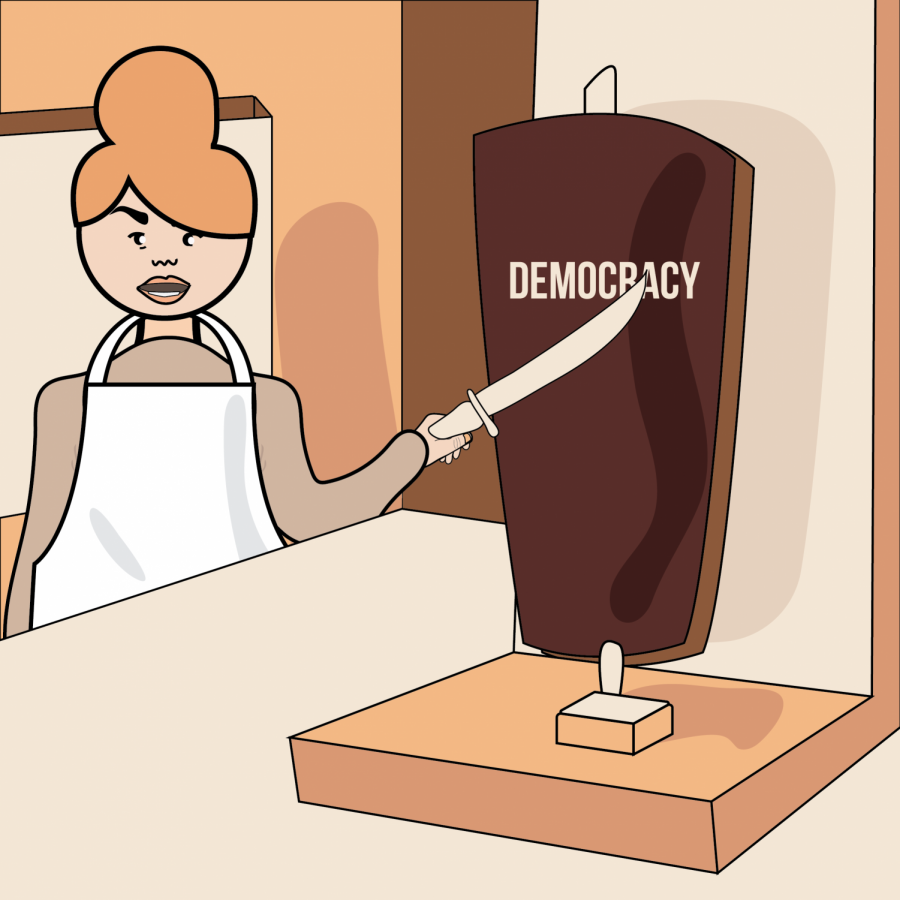Moral diplomacy is not working
Oct 30, 2018
Jamal Khashoggi is dead.
Saudi Arabia finally admitted on October 20 that The Washington Post journalist and longtime critic of the country’s regime had been killed inside the Saudi consulate in Istanbul. Many questioned the country’s denial of involvement in Khashoggi’s demise.
President Donald Trump refused to punish the Saudis amid this purported attack on press freedom, claiming that Saudi arms deals create jobs. It seemed as though a foreign policy based on defending democracy and human rights died with Khashoggi under the current administration. The truth is that “moral diplomacy” has been rotting for decades.
We’ve witnessed democracy ebb in many key American allies over the past several years. Thailand was taken over by its own military, the Philippines showed no regard for due process in its bloody anti-drug campaign and Turkey cracked down on dissenting scholars, all while countries around the Persian Gulf were never democratic to begin with.
Yet America seemed utterly incapable of wrangling its rogue friends. Hungary, a key NATO ally, continued to erode press freedom, facing isolation from the U.S., and Filipino President Rodrigo Duterte told Obama to “go to hell” for condemning his brutal war on drugs.
Get The Daily Illini in your inbox!
“Moral diplomacy” failed because the U.S. became overly reliant on its allies. After losing Korea and Vietnam, Uncle Sam realized he cannot just wipe his enemies off of the map using his own hands. To counter the “ultimate evil,” one must sometimes seek help from lesser evils, hence the practice of propping up ruthless dictators who would smite communism in their respective countries.
As devious as it is, this Cold War legacy lives on, as new threats like terrorism emerged in the wake of Soviet collapse.
In Yemen, Saudi Arabia carried the fight against Iran’s proxies because it would be too costly to put American boots on the ground. Naval drills in the Pacific with the Thai and Filipino navies deter Chinese expansion and Pakistani airfields allow America to fly troops deep into Afghanistan.
Yet in the process of outsourcing its own battles, America grew so dependent on its allies that it can no longer uphold American ideals like democracy and human rights without hurting itself.
Criticisms hurled at the Philippines’ Duterte, who ordered thousands of extrajudicial killings, could prompt him to ally with China, which may result in the loss of major military bases in South East Asia. Likewise, Saudi Arabia’s brutal treatment of women does not change its status as an OPEC heavyweight, one that can easily ratchet up oil prices. In Eastern Europe, America will be having an exceptionally difficult time punishing Poland for undermining judicial independence, as Russian aggression in Crimea requires that all NATO allies hold the line.
Despite moral diplomacy’s feeble state, U.S. policymakers should not abandon the concept altogether. As for Khashoggi, cutting arms deals is a punishment for which Saudi Arabia cannot retaliate, because buying American guns to push back Iran is also in its own imperative interest.
Supporting dictators can also backfire, as oppression often lends strength to popular uprisings aiming to establish anti-American regimes. Iran, one of America’s biggest headaches in the Middle East, was once a faithful ally before religious fundamentalists overthrew its imperial dynasty in 1979.
But by the end of the day, the U.S. must come to terms with the fact it exists in a multipolar world, one in which smaller countries, by virtue of geographical location or abundance in resources, possess asymmetrical leverage over their larger, more powerful counterparts. Pushing allies around and giving human rights lessons will bite.
Guzi is a freshman in LAS.






